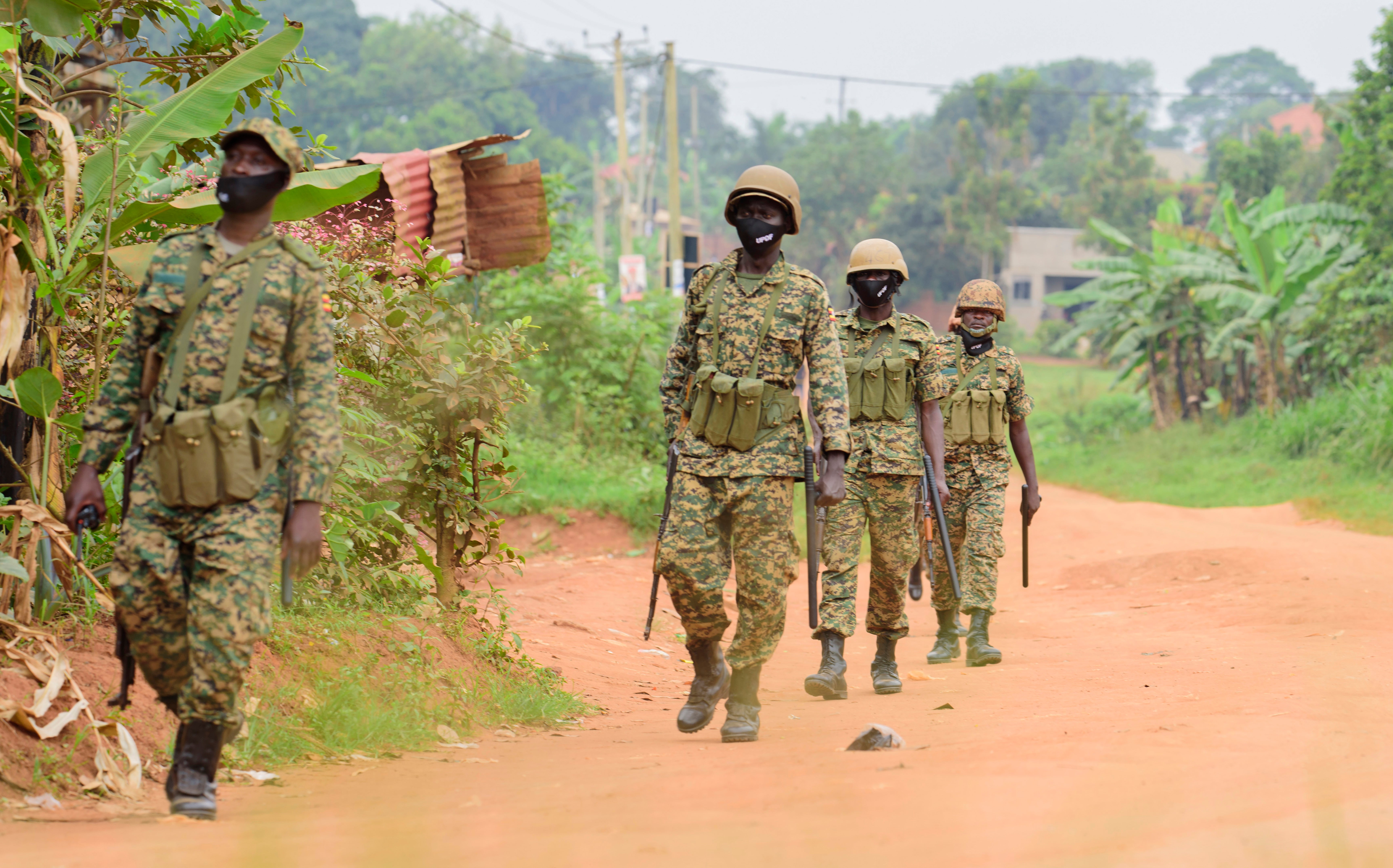Uganda cops surround offices of Bobi Wine's opposition party
The party of Ugandan opposition figure Bobi Wine say that top officials have been denied access to their headquarters in the capital, Kampala, as they prepared to launch a legal challenge against Wine’s detention inside his house

The opposition party of Ugandan presidential challenger Bobi Wine said on Monday that police have prevented top officials from going to their headquarters in the capital, Kampala, as they prepare to launch a legal challenge to Wine's house arrest.
Police swooped in at dawn at the offices of Wine’s National Unity Platform, diverted traffic, and stopped people from entering, party spokesman Joel Ssenyonyi, told The Associated Press.
Wine, whose real name is Kyagulanyi Ssentamu, was the main opposition challenger in presidential elections last week that electoral authorities say long-time leader Yoweri Museveni won with 58% of the vote. Wine, who took 34% of the vote, has rejected the official outcome as fraudulent and insists he will use all legal means to protest the “cooked-up” results.
Wine’s party has said it has video evidence of the military stuffing ballot boxes, casting ballots for people and chasing voters away from polling stations.
Opposition lawmaker Medard Sseggona, an attorney for Wine, said he feared police would seize any vital information related to the elections that was kept at the party's headquarters.
Museveni has dismissed the claims of vote-rigging.
“I think this may turn out to be the most cheating-free election since 1962,” when Uganda won independence from Britain, said Museveni in a national address on Saturday.
But the election was marred by violence ahead of polling day as well as an internet shutdown that remained in force until Monday morning, when access was restored for most Ugandans, although social media sites remained restricted.
Wine has been effectively under house arrest since he cast his vote and now is allegedly unable even to receive visitors. Police prevented party officials who were trying to meet with Wine at his home outside Kampala in order to discuss the way forward, Ssenyonyi said.
The party will seek a court order to end Wine's apparent house arrest, he said. “His home is not a detention facility,” he said.
Police spokesman Fred Enanga said security forces are “maintaining a security presence” around Wine's home as a pre-emptive measure against possible rioting in the aftermath of the disputed polls. Wine is allowed to leave is leave his home under “escort” in order to prevent his followers from “instigating riots and violent demonstrations," he said.
Wine has said his campaign against Museveni is nonviolent.
Police similarly surrounded the home of opposition candidate Kizza Besigye after presidential elections in 2016, preventing him from going out after the official results of his loss to Museveni had been declared.
In a generational clash watched across the African continent with a booming young population and a host of aging leaders, the 38-year-old singer-turned-lawmaker posed arguably the greatest challenge to Museveni, 76, since he came to power in 1986.
Calling himself the “ghetto president,” Wine had strong support in Uganda’s cities, where frustration with unemployment and corruption is high.
Bookmark popover
Removed from bookmarks